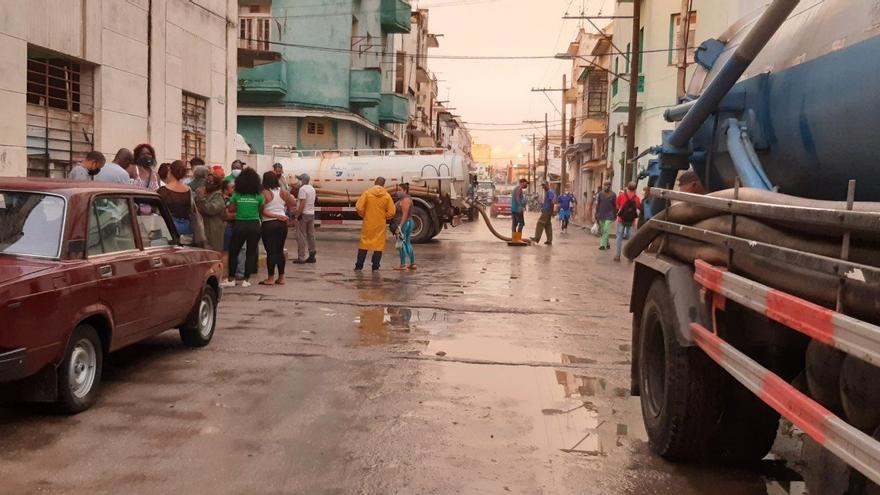
![]() 14ymedio, Havana, 2 July 2021 — Despite the restriction measures related to the Covid pandemic and systematic harassment by State Security, which keeps the main political activists jailed or under house arrest, protests in Cuba grew in June. The Cuban Conflict Observatory (OCC), in a report published this Friday, counts 249 protests, more than 8 a day, a slight increase compared to the 231 in May.
14ymedio, Havana, 2 July 2021 — Despite the restriction measures related to the Covid pandemic and systematic harassment by State Security, which keeps the main political activists jailed or under house arrest, protests in Cuba grew in June. The Cuban Conflict Observatory (OCC), in a report published this Friday, counts 249 protests, more than 8 a day, a slight increase compared to the 231 in May.
Among them, the OCC highlights the role of women. Women “are present in the front line of street protests, in campaigns of squatting in empty premises to turn them into temporary housing, in protests against the abandonment of healthcare system, the shortage of food and drugs, the cultural resistance of the artists, the protests on social media, the cacerolazos [banging of pots and pans in protest], and the painting of slogans in public spaces taking advantage of the darkness of the blackout.” A notable protest carried out by Cuban women in June was that of the neighbors of “Mr. Joe’s tenement,” due to the flooding of their houses.
The demonstrations against the state of the health system, a traditional crown jewel for official propaganda, are unprecedented. There were some 46 protests of this type in June, against the state of the hospitals, compulsory confinement centers for the exposed or positive, and the absence of basic medicines, shows, for the OCC, that “another essential pillar of the symbolic capital is crumbling: there is no ’health for all’, only for a few.”
Another fact that the Miami-based NGO highlights is that, also for the first time, the 133 protests related to economic and social rights outnumbered the 116 political protests.
In ten months, from September 2020 (in which there were 42 protests) until this June, there have been a total of 1,525 protests throughout the Island, explains the Observatory, which also highlights the increase in individual protests “from different sectors of society.” In this regard, it gives as examples the priest from Camagüey Fernando Gálvez, the doctor from Holguin Alexander Pupo Casas, and the poet from Havana Katherine Bisquet.
The OCC says that “the new civil society is maturing and looking for new strategies to achieve its demands,” after highlighting the call made by the artist Luis Manuel Otero Alcántara, leader of the San Isidro Movement. “We have to look for new ways, new ways where the regime does not have space.”
The regime, meanwhile, has only one answer: repression, and trying to “divert the attention of the public and the international press with thematic distractions.” The Observatory gives as an example the “announcement of an unexpected currency exchange.”
The OCC concludes in its statement that the Cuban military leadership continues “without understanding anything”: “The Cuba of 2021 is not the same that they subdued in 1961 and they are still mentally prisoners of the KGB and Stasi manuals,” it states, adding, “The origin of the ungovernability is not the CIA or the opposition but the obsolete, unproductive, exclusive, repressive governance regime that is dying among the lethal blows.”
____________
COLLABORATE WITH OUR WORK: The 14ymedio team is committed to practicing serious journalism that reflects Cuba’s reality in all its depth. Thank you for joining us on this long journey. We invite you to continue supporting us by becoming a member of 14ymedio now. Together we can continue transforming journalism in Cuba.
